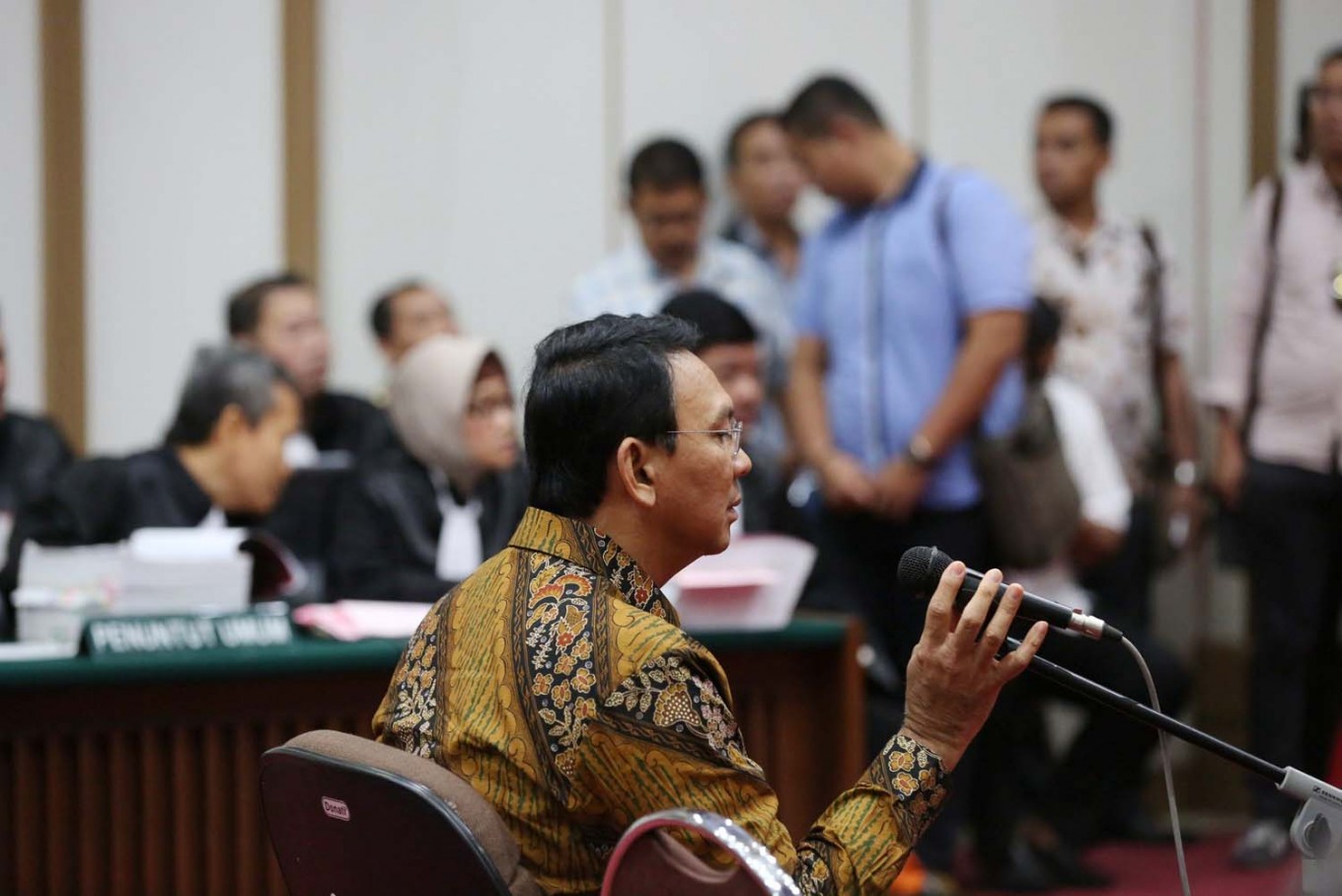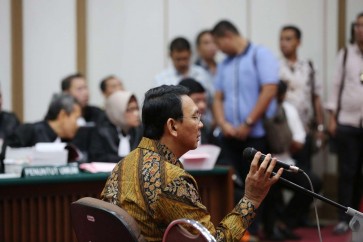Popular Reads
Top Results
Can't find what you're looking for?
View all search resultsPopular Reads
Top Results
Can't find what you're looking for?
View all search resultsNo live broadcast, no violations of press freedom
The trial of Ahok undoubtedly has big social and political impacts. A blasphemy trial is very risky and can put national unity in jeopardy.
Change text size
Gift Premium Articles
to Anyone
F
eb. 21 saw the 11th hearing in the blasphemy trial of Jakarta Governor Basuki “Ahok” Tjahaja Purnama. There were no TV cameras inside the courtroom during the session, let alone live broadcast, as decided by the panel of judges when the trial began on Dec. 13.
Presiding judge Dwiarso Budi Santiarso told the press back then that live TV coverage was permitted, except during testimony of witnesses.
For freedom of the press campaigners, such a limitation constitutes a violation of people’s right to information, hence a transgression of democracy.
Their argument is supported by the fact that there are precedents of live reporting from the courtroom.
The latest and most prominent of these was the murder trial of Jessica Kumala Wongso from February to October 2016. The live report of the trial earned the broadcasters high viewer ratings, hence high advertising revenue.
But for those who understand that freedom of the press has its limits, such as public order or national unity, the judges’ decision deserves appreciation. A court’s authority includes the discretion to prevent the public from the social and political impacts of live broadcasts and to maintain the sanctity of the court.
The openness of trials to the public is a universal norm, and it is stipulated in Article 13 of Law No. 48/2009 on the judiciary.


















